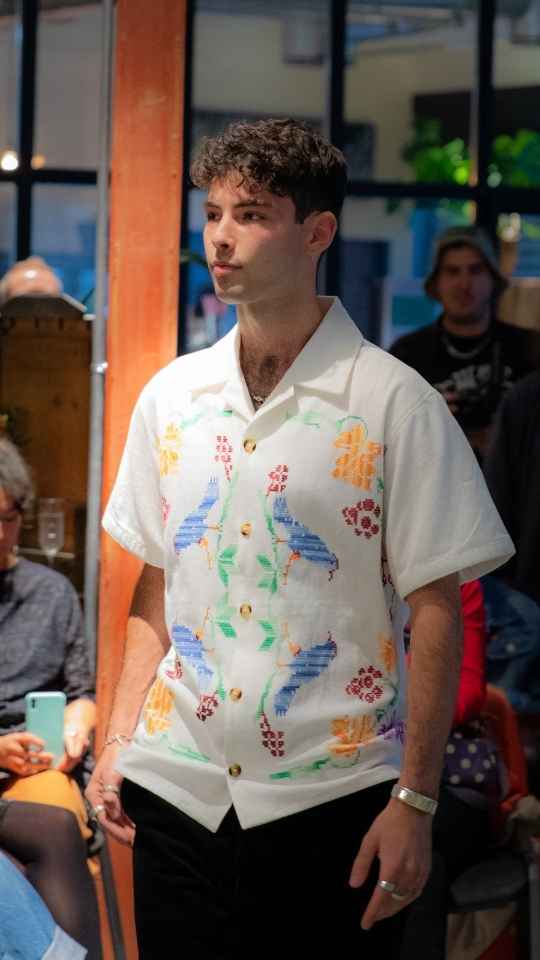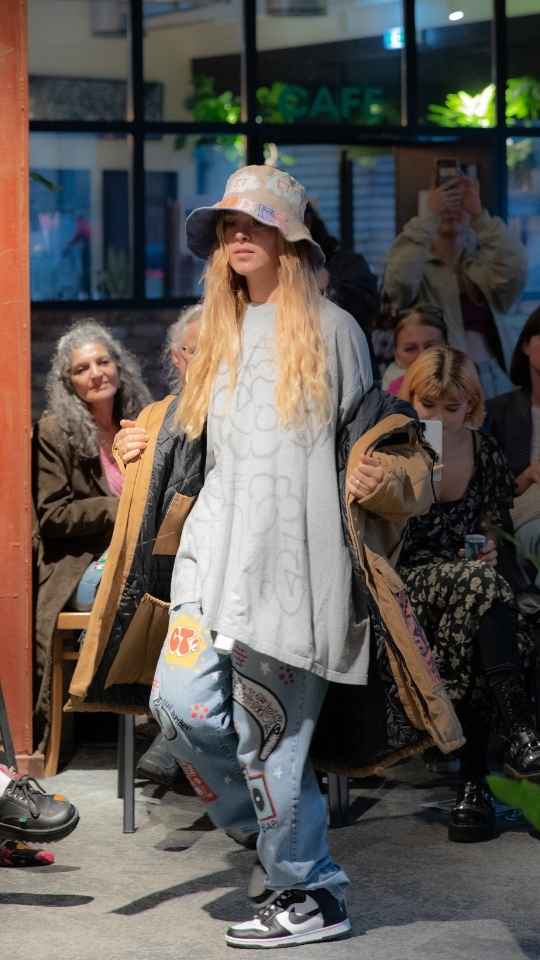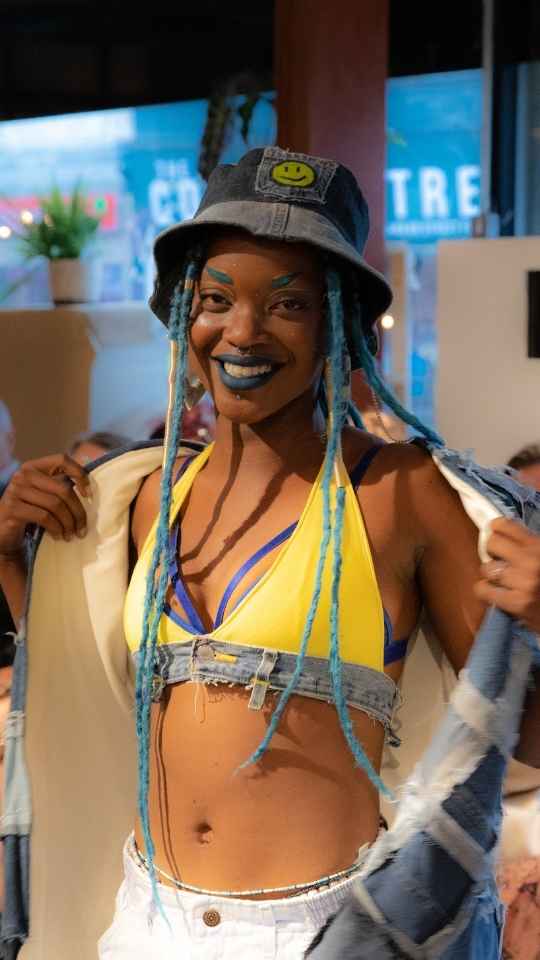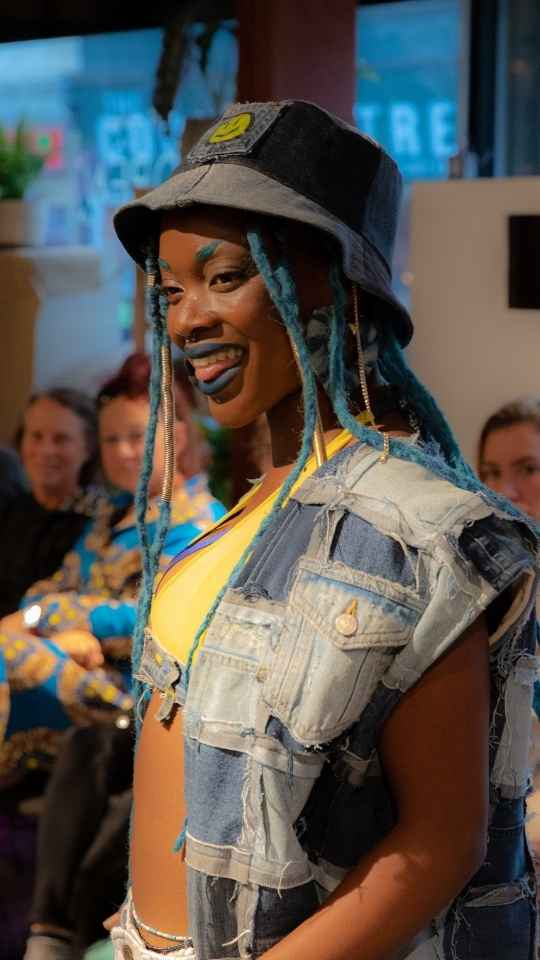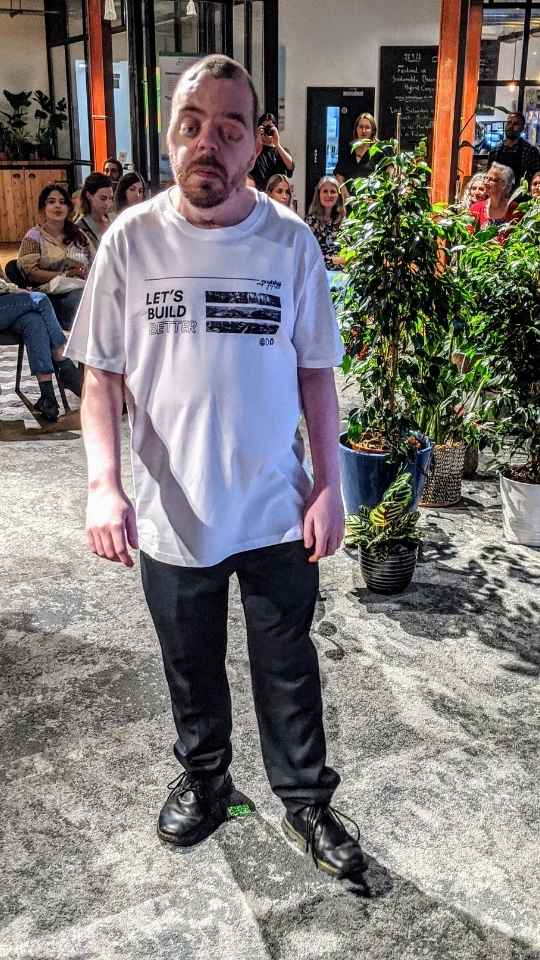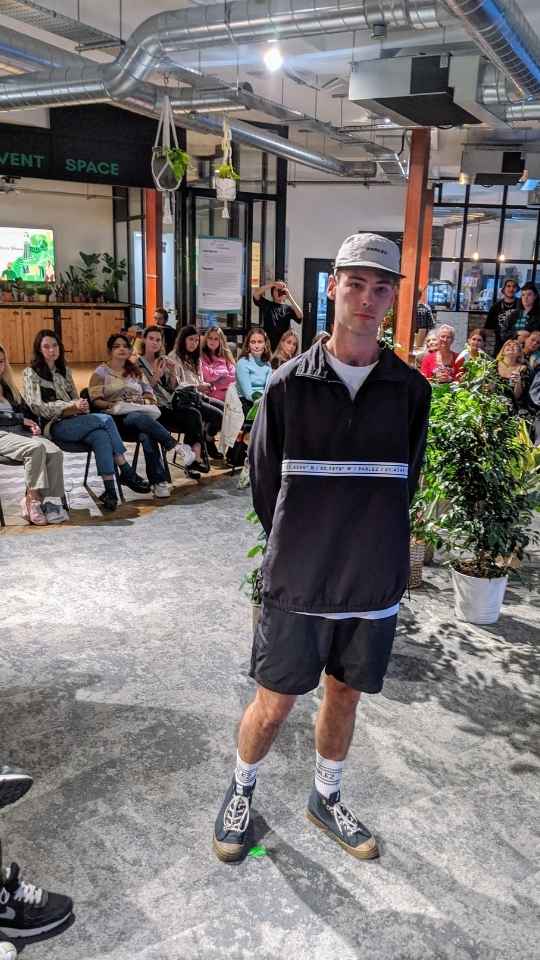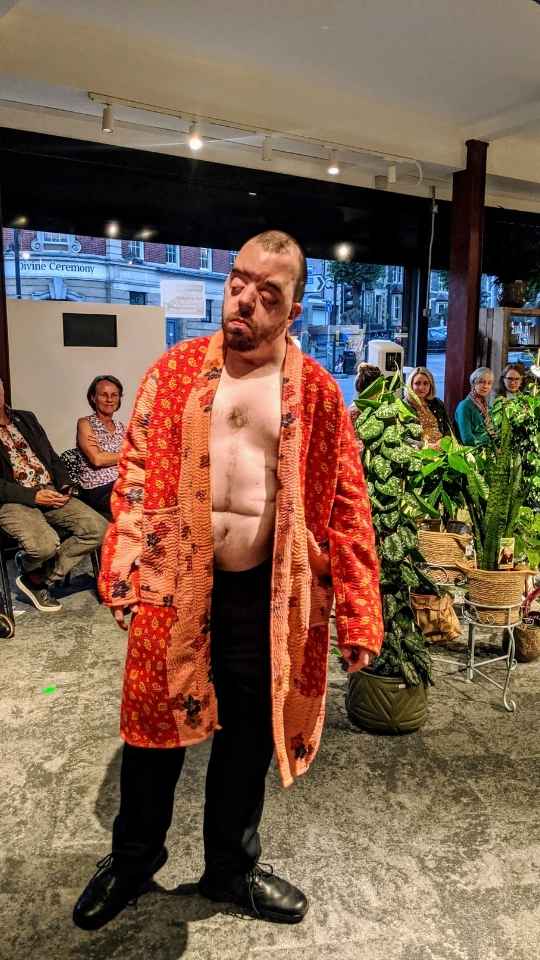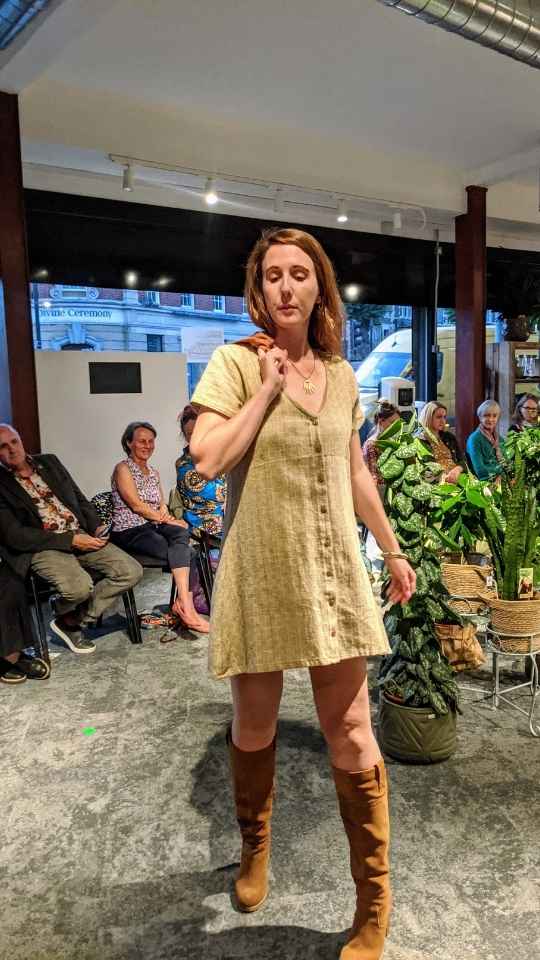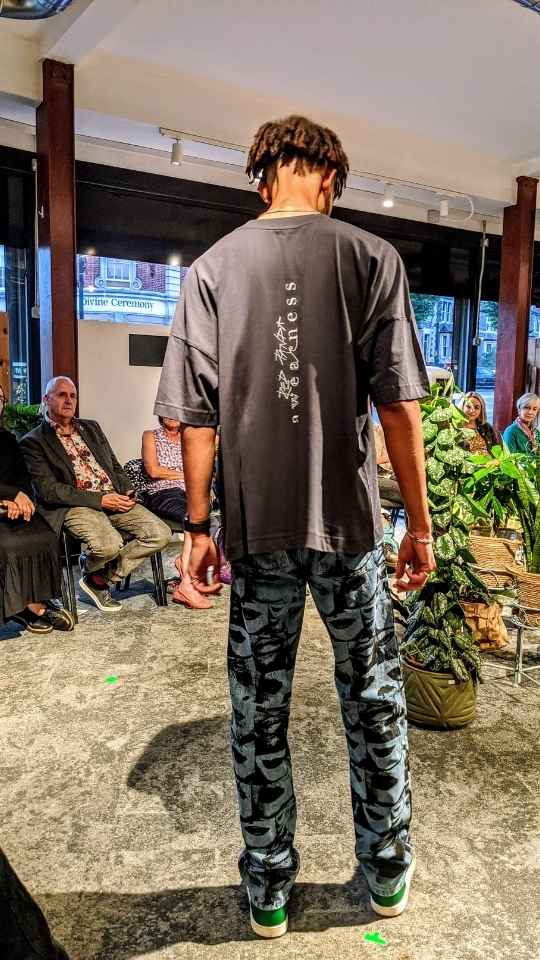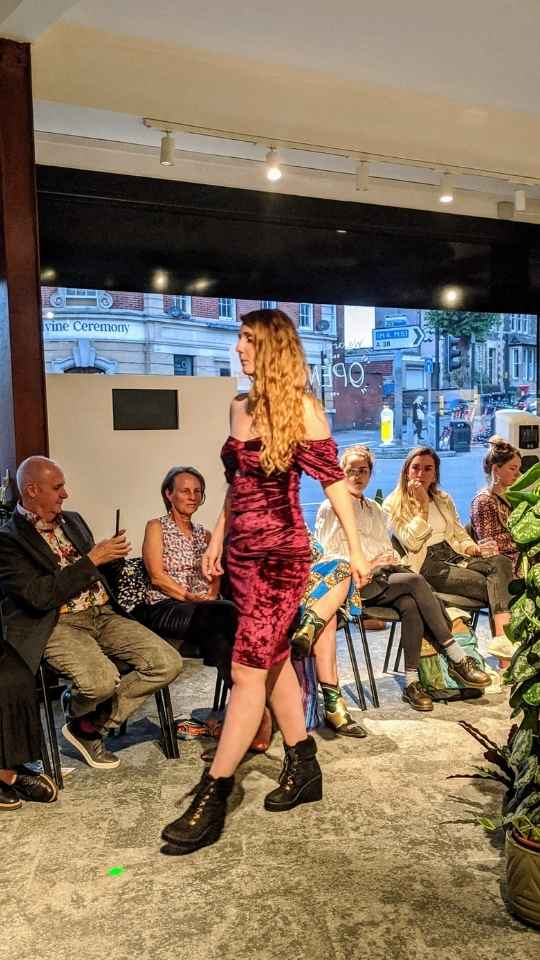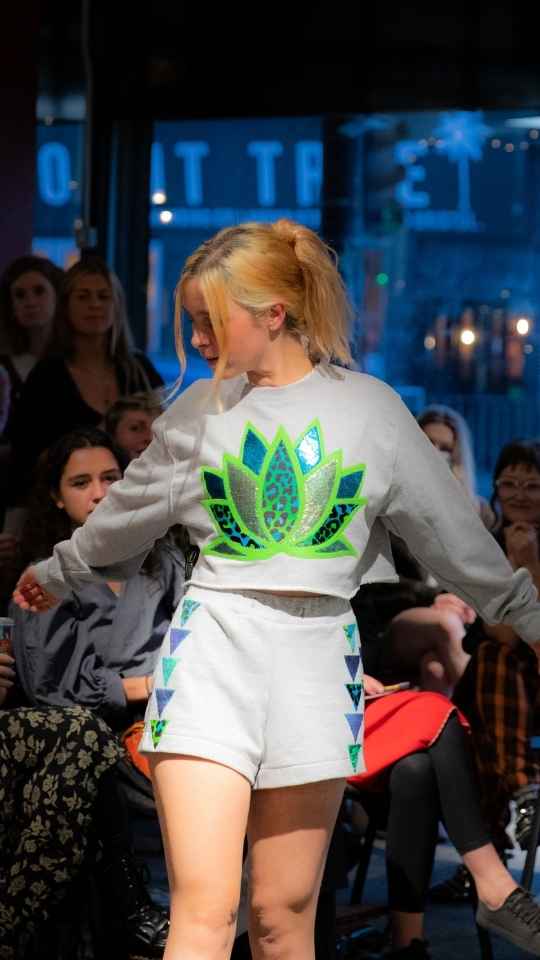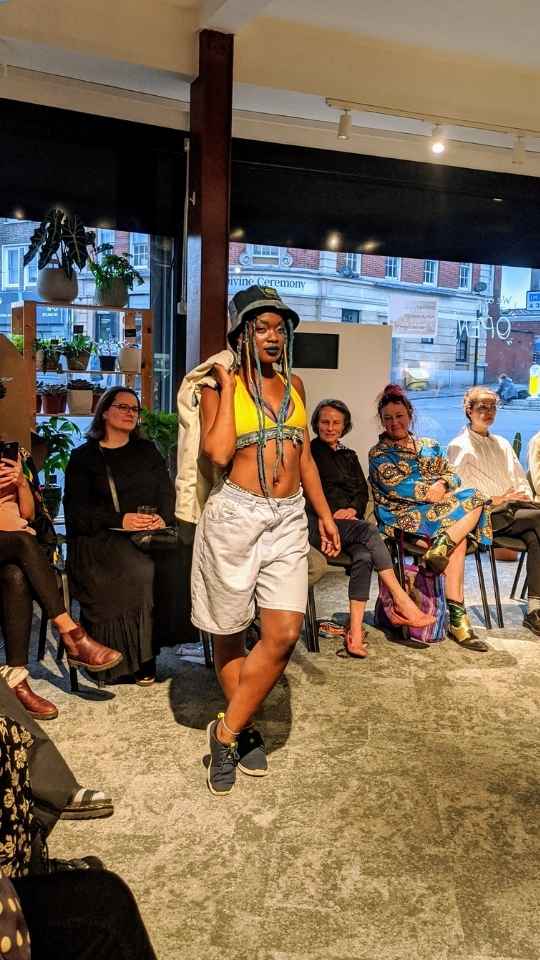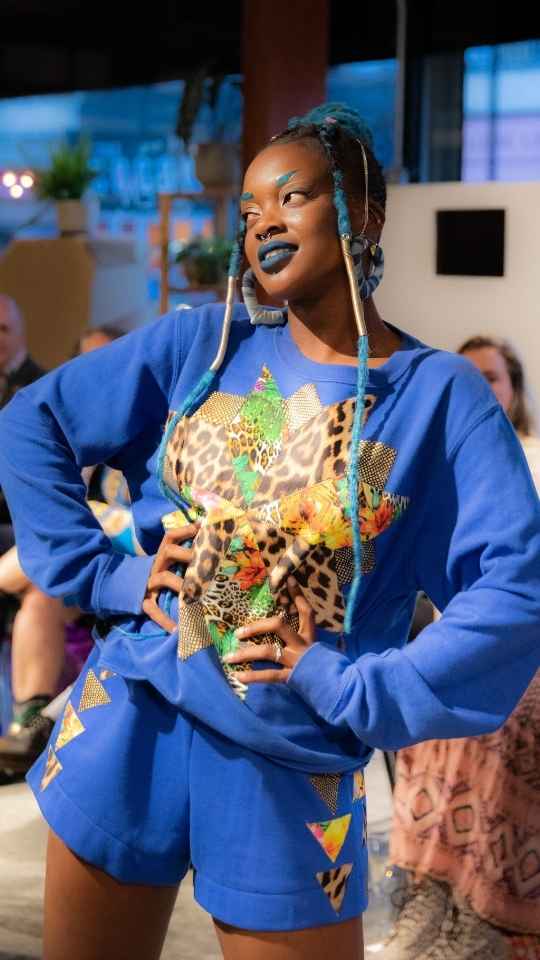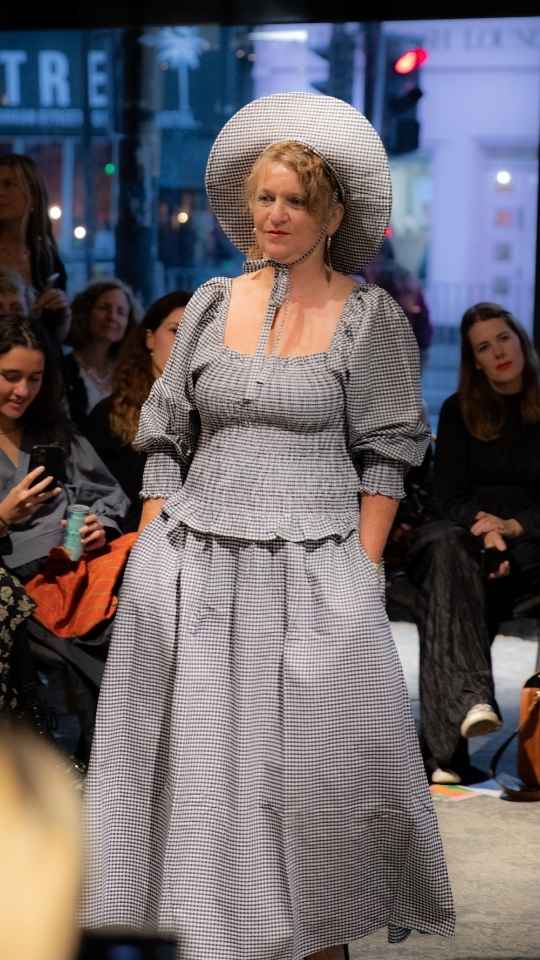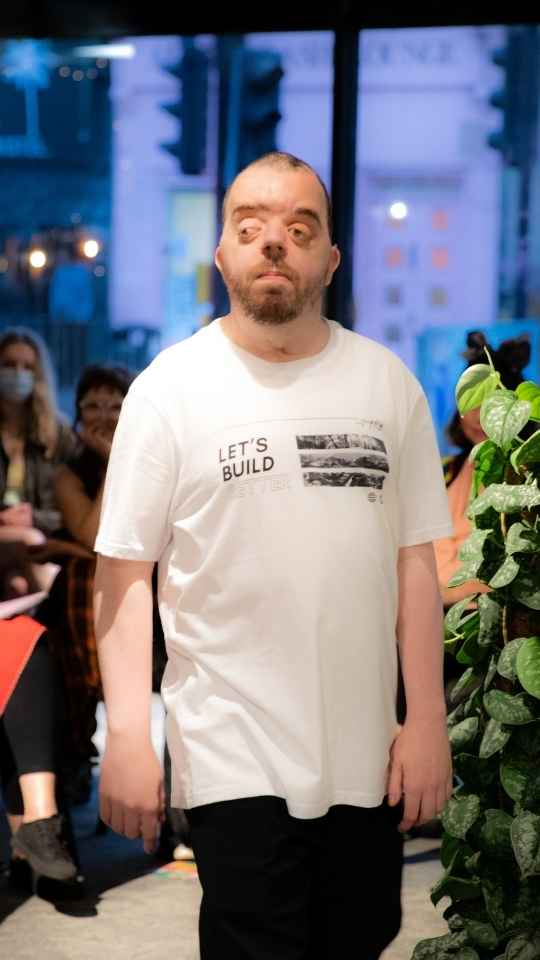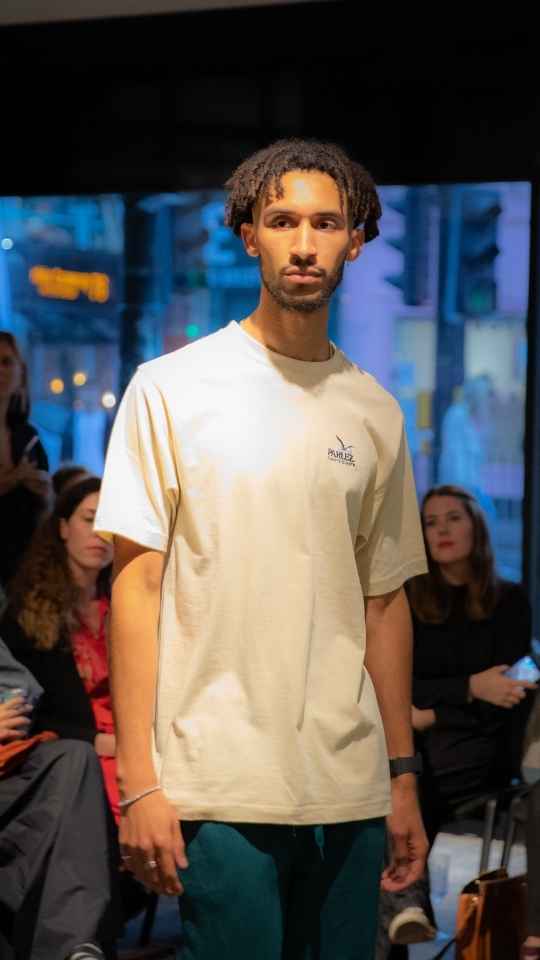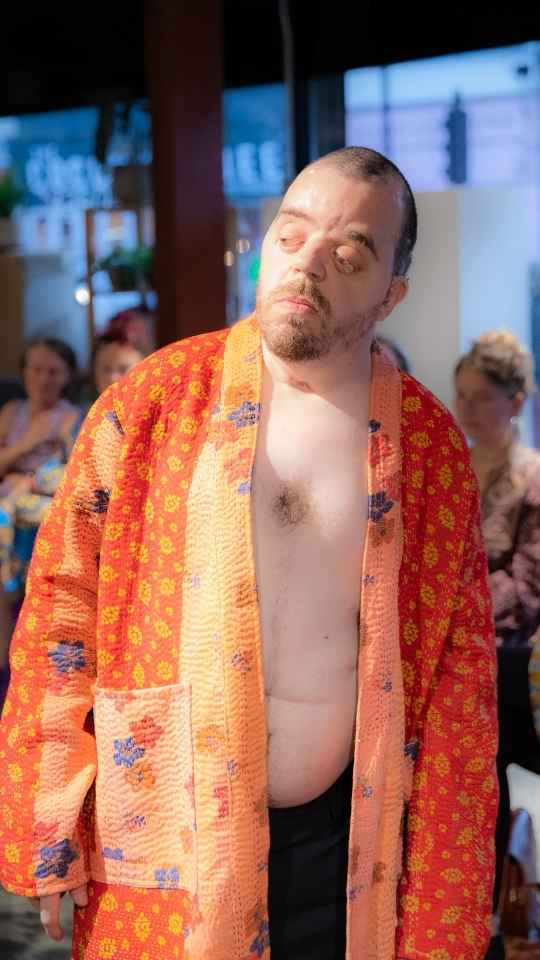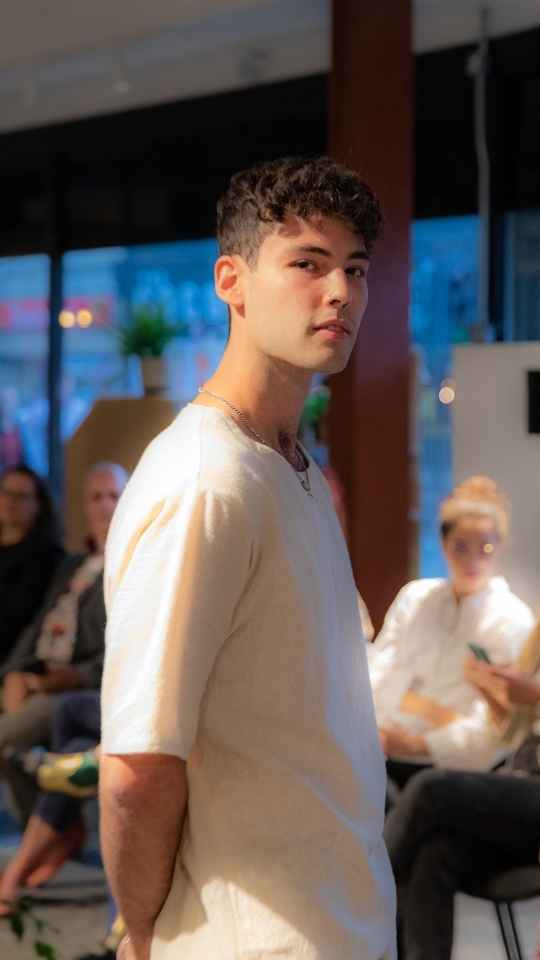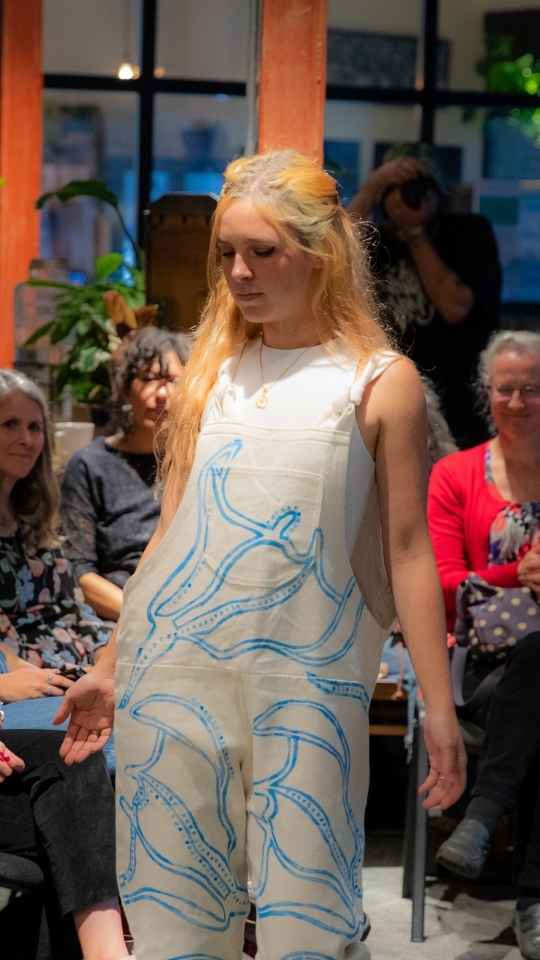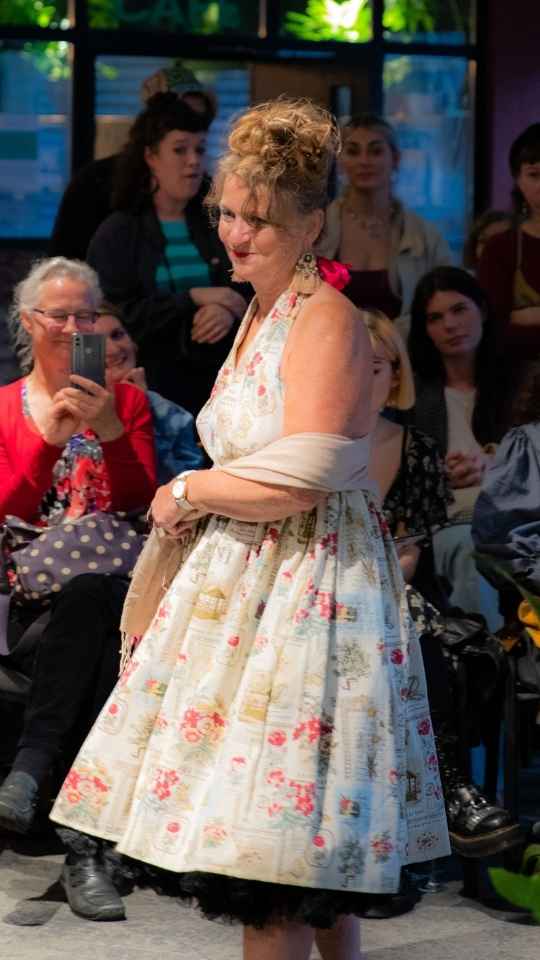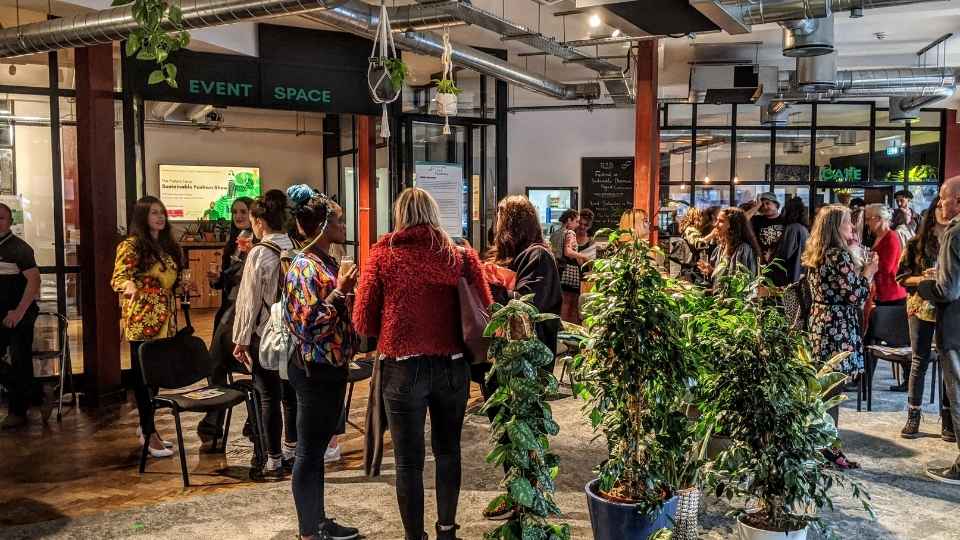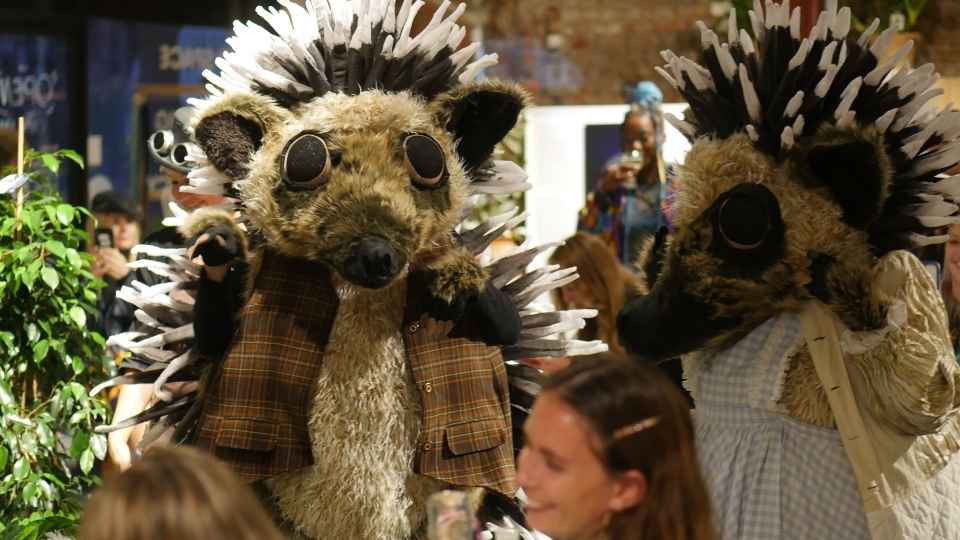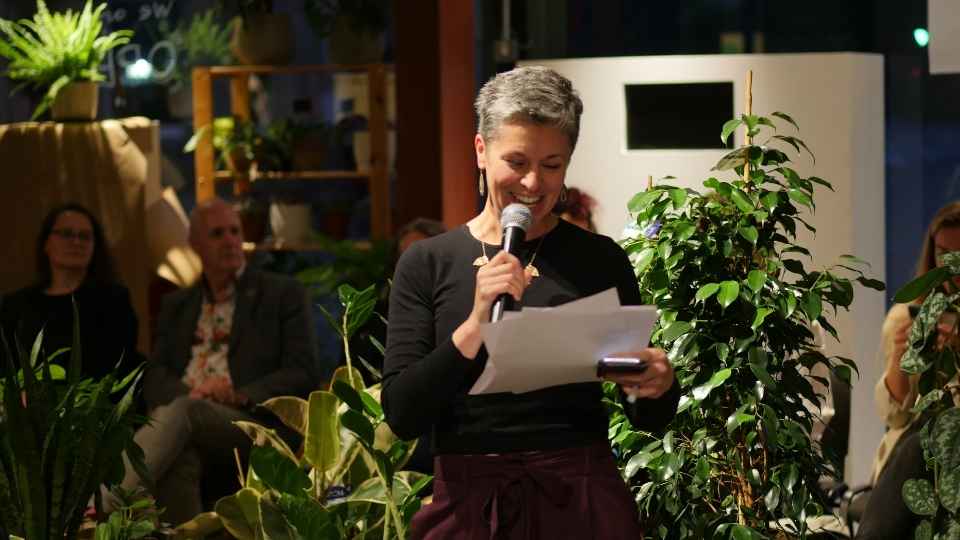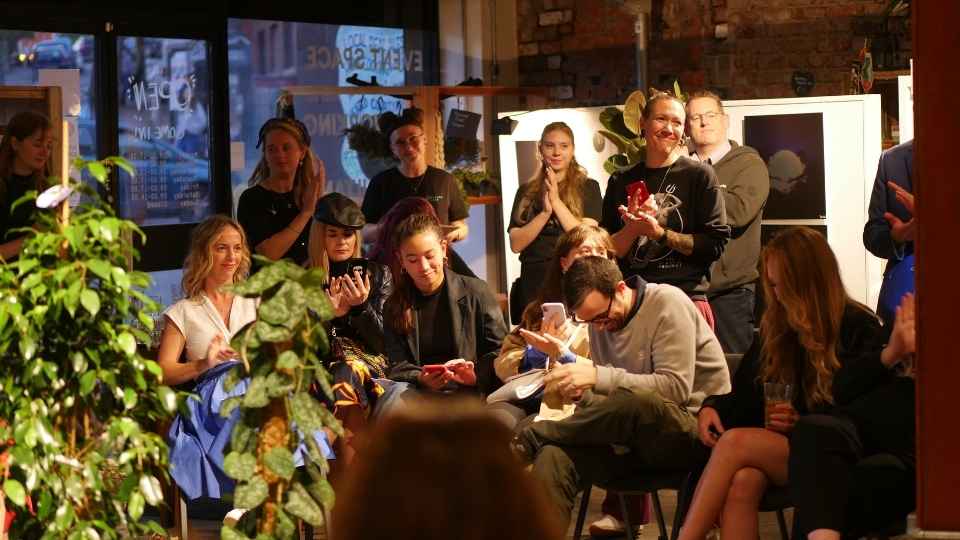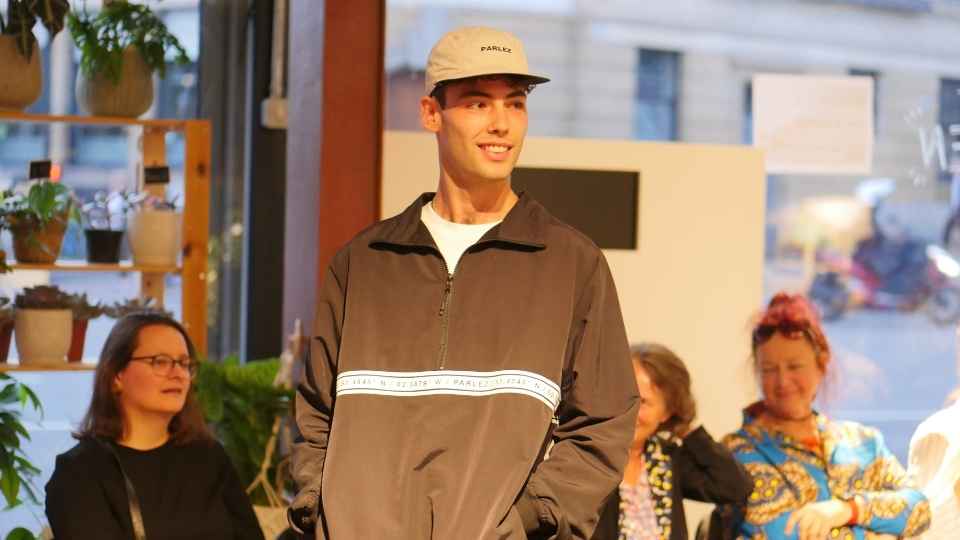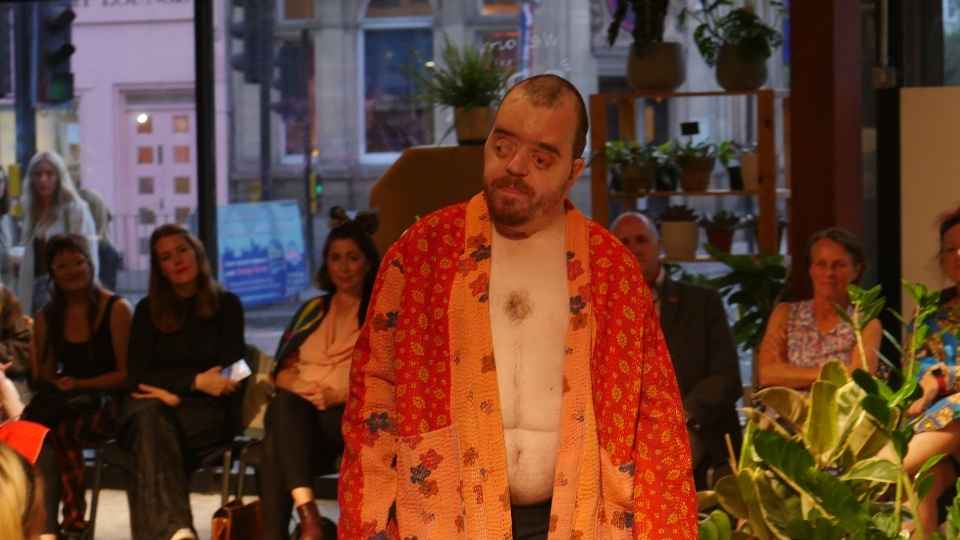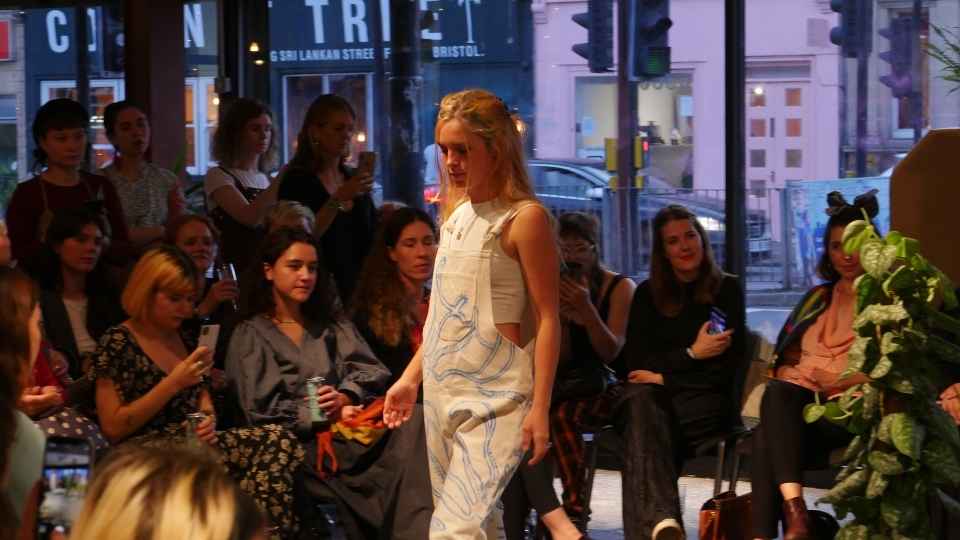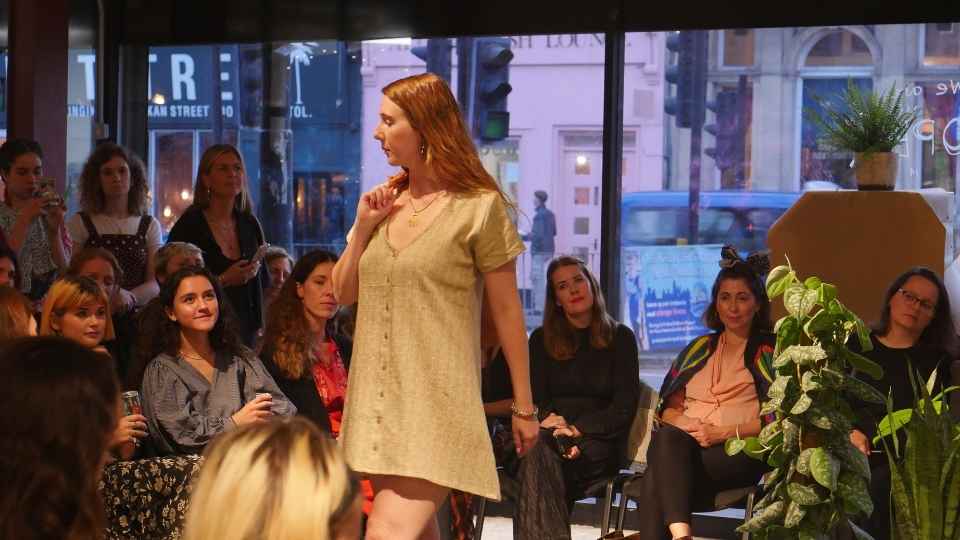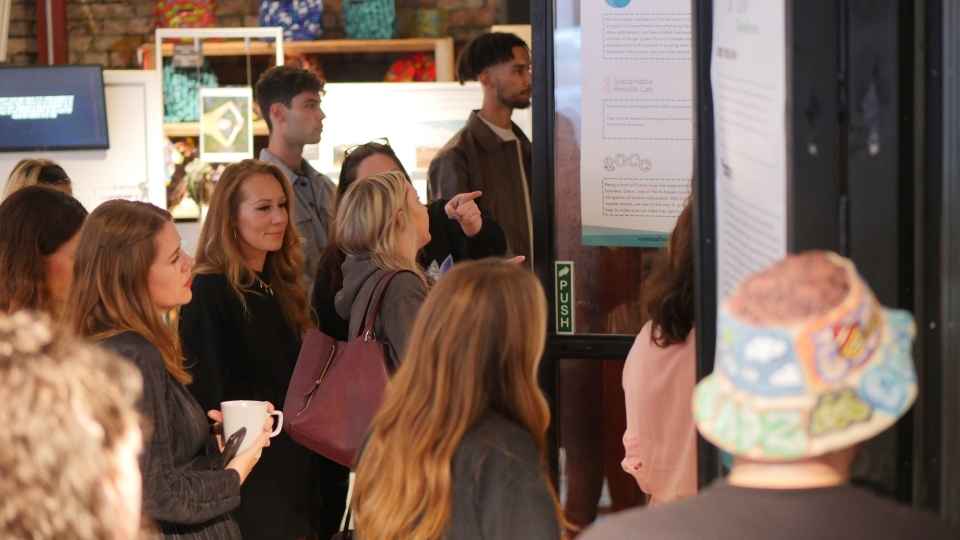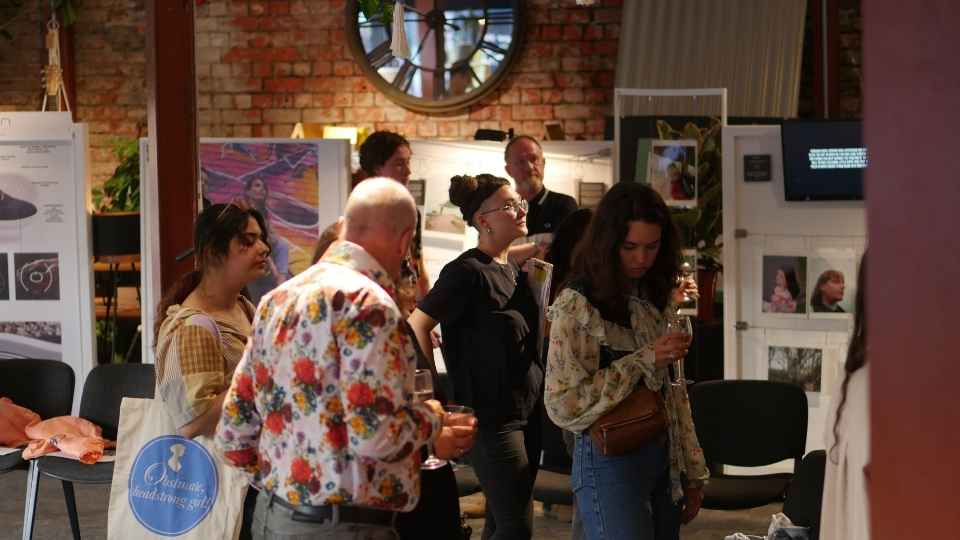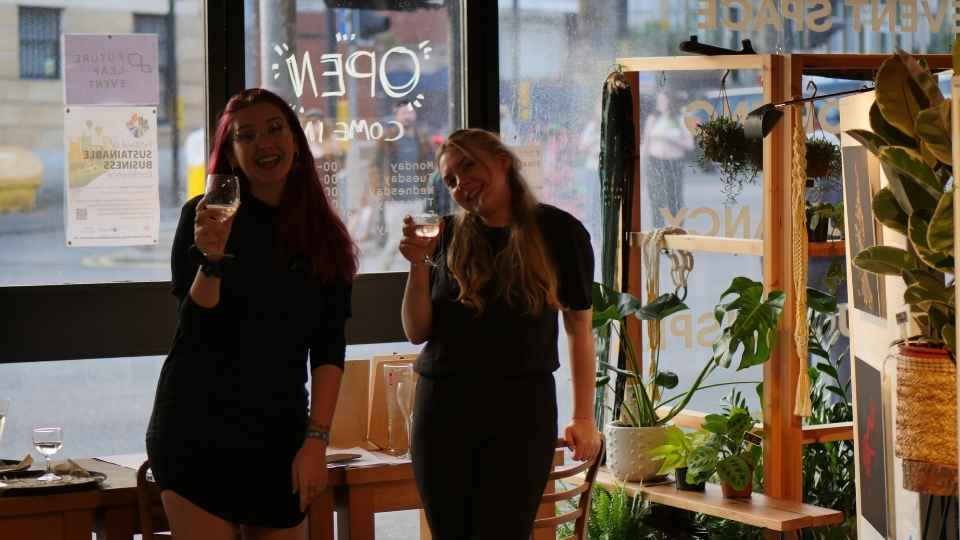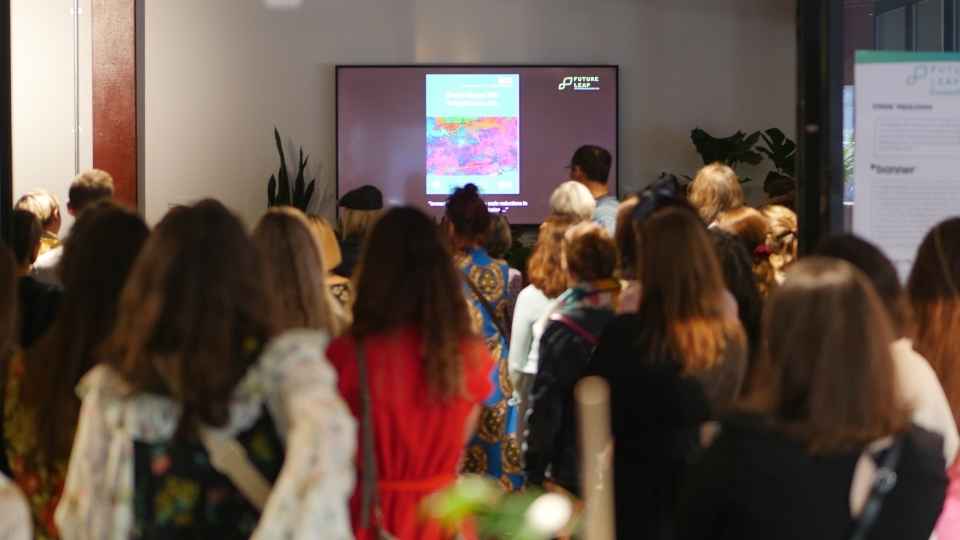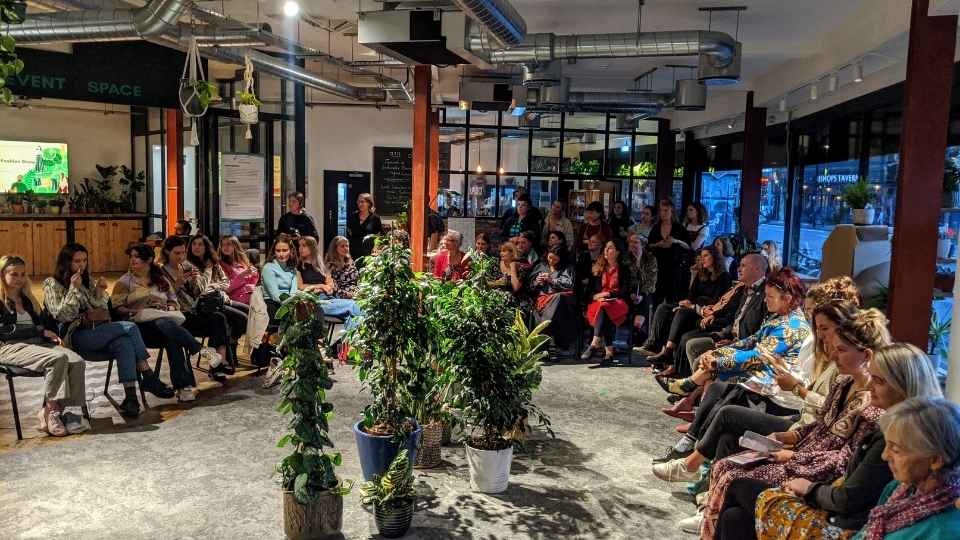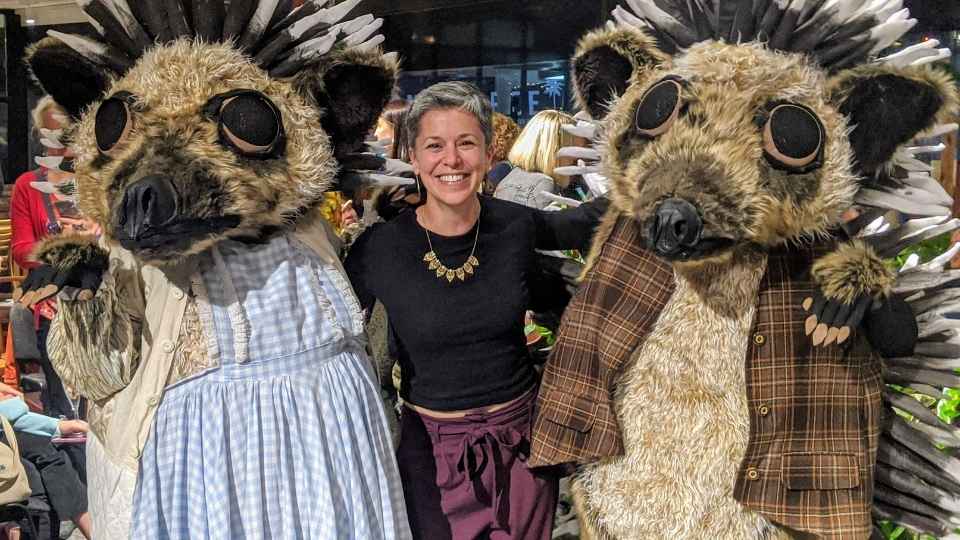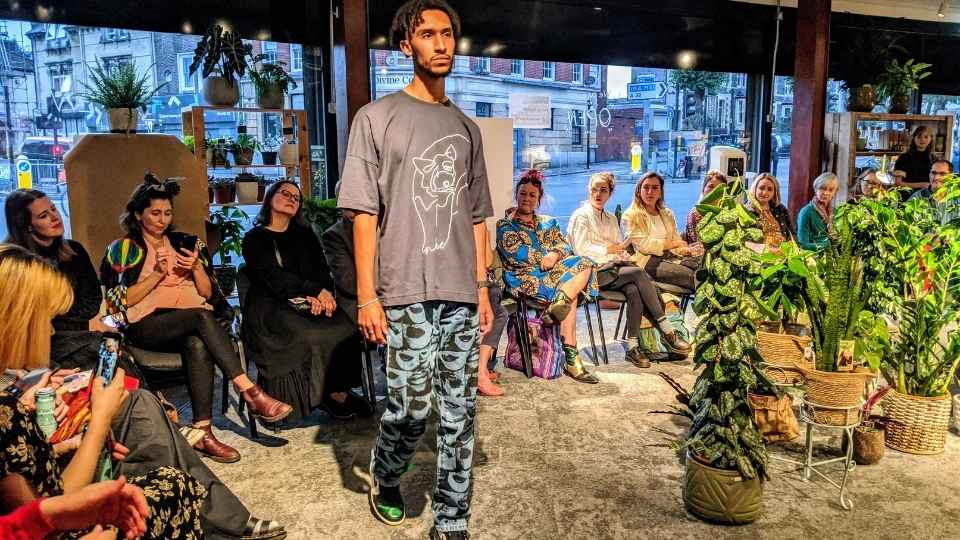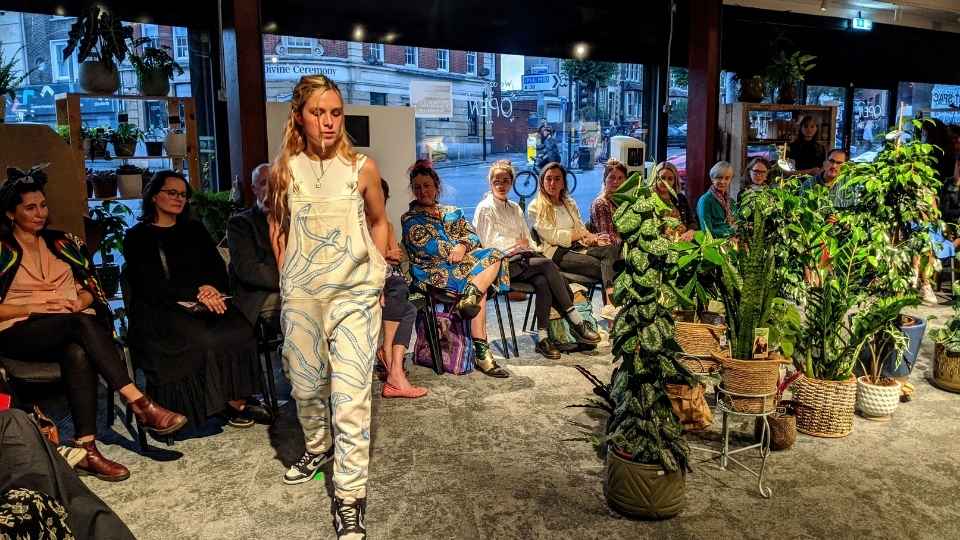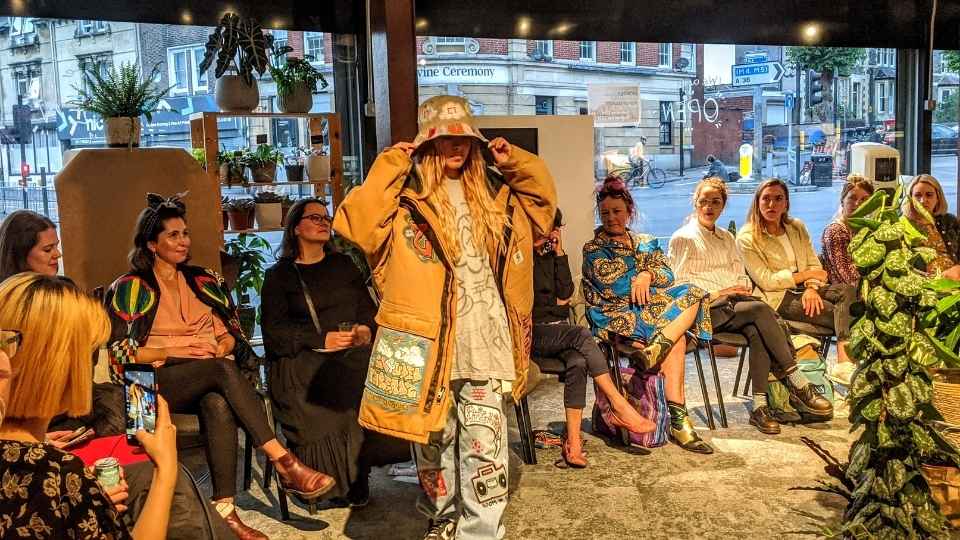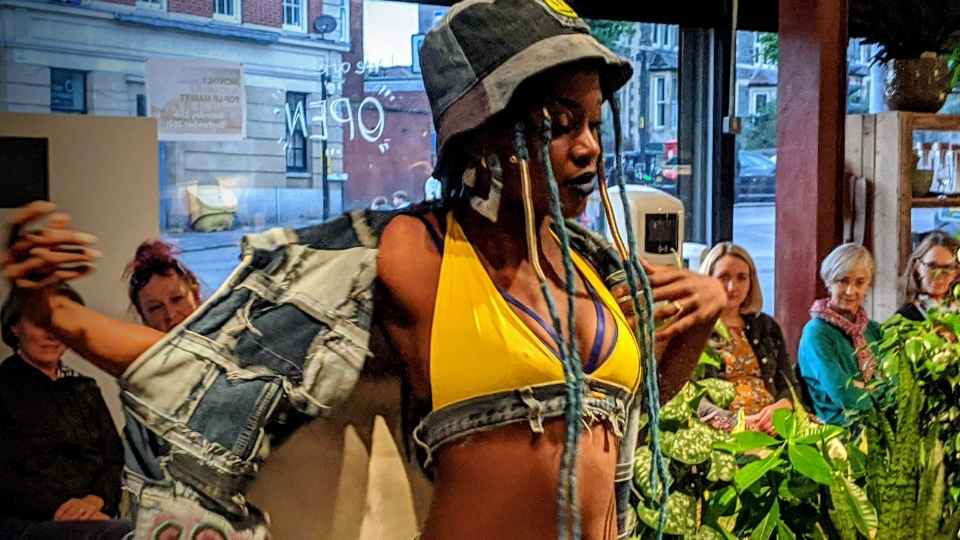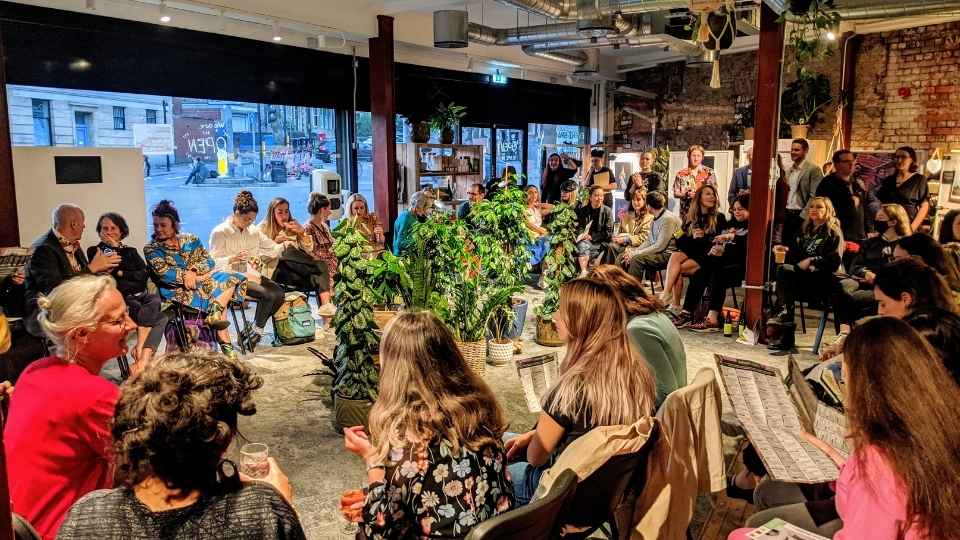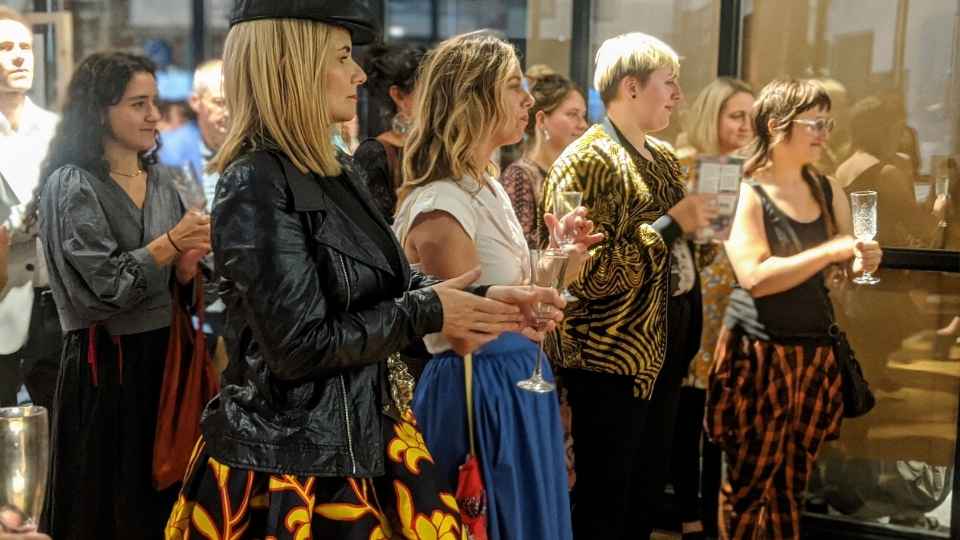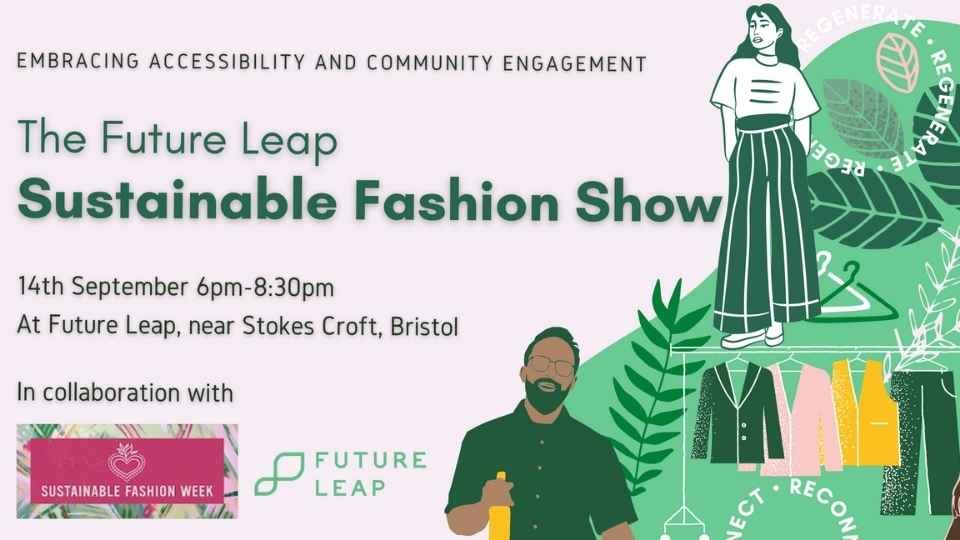See Fashion Show Photo Gallery Below
Article Written by Holly Supka, Freelance Copywriter and Content Creator. Visit Holly’s website here.
Future Leap held their first Sustainable Fashion Show at their carbon neutral hub on Gloucester road on Tuesday 14th September, kindly supported by Sustainable Fashion Week. Sustainability experts, eco-friendly brands and ethical fashion lovers came together for an evening of talks, networking and catwalks during Sustainable Fashion Week. Brands and businesses from all over the South West displayed their pieces in the catwalk, and speakers from Anthesis and Global Goals Centre shared their expertise on sustainable fashion and their advice for the individual consumer.
The event was inspired and supported by Sustainable Fashion Week, a grassroots collaborative project aiming to make sustainable fashion accessible by empowering people with skills and knowledge to help drive positive change in our relationship with clothes.
The event kicked off with the opportunity to network and check out local fashion projects with a glass of bubbly. The exhibition featured projects emphasising the need for change in the fashion industry and showcased local designers working within this sphere. One fashion editorial series by RELUV, an online marketplace that allows charity shops to sell clothes online, combined striking images of secondhand clothing being modelled against backdrops of dramatic weather conditions.
Following this, Future Leap introduced their speakers for the night: Holly Browne from Anthesis and Jenny Foster of Global Goals Centre. Holly outlined the environmental issues caused by the fashion industry, highlighting some particularly shocking statistics: such as the amount of garments produced annually (over 100 billion) and the fact that the fashion industry produces 10% of the world’s carbon emissions (more than aviation!).
After explaining our predicament, she launched into how we can support the changes we need to see, focusing on the life cycle of the garment itself. In order to eschew or support a certain brand, it’s important to look at each step, the first being product design and intention: does this brand seek to make a durable piece of clothing? Next, production: who’s making it? What processes are involved? Distribution followed: how will your chosen piece come to you? What will it arrive in? Next was use and durability, flipping the focus to how we consume: What’s it for? How long do you intend to keep this for? Lastly, she acknowledged the final stage: how will you get rid of it? “Just because it’s cheap, doesn’t mean it’s worthless”: Holly impressed the importance of remembering the processes that go into our clothing when we choose how to dispose of it. This talk gave practical advice to those looking to change their fast fashion habits, but it also reminded the audience of the huge amount of work and energy that goes into each garment: something the fast fashion industry would rather we forget.


Jenny Foster began her talk by showing us The Global Goals: 17 goals that world leaders agreed to in 2015 to create a better world by 2030. Jenny explained how the fashion industry as it stands goes against almost all of these goals – as well as many other failings, it uses 1.5 trillion litres of water annually. She asked us to listen to designers and makers and amplify their voices: like Holly, she acknowledged the need for a behavioural change in the way we consume clothing, and the necessity of people truly seeing the process of making clothes as intrinsic to that. Jenny also asked us to appreciate the creative potential of up-cycled or recycled fashion and the achievement of restyling or fixing something. Both speakers emphasised the endless good of secondhand fashion: it’s simply the most environmentally friendly option, as the clothing already exists. Jenny delivered a message of strength and positivity at the end of her speech: to keep pushing brands and encouraging those around us: searches for sustainable fashion have increased by 66% in the last 3 years. The message was loud and clear: wear it, repair it, share it!
The talks were followed by the hotly anticipated catwalk, featuring brands and organisations such as Clouded Threadz, Baana Naturals, Pikol Clothing, Parlez, Ilk + Ernie, Wear My Wardrobe Out, Black Olive, Banjaara, Garrett Creative, and Awearness. We saw an array of gorgeous pieces produced using a variety of innovative methods: natural dyeing, upcycling, and some pieces that were 100% secondhand. Following the catwalk, Future Leap encouraged members of the audience to present a 60 second pitch for their relevant organisations, leading to lots of excited buzz, networking and idea swapping as the event wound down.
Future Leap provide organisations the space, knowledge, contacts and tools to accelerate their sustainability journey and progress towards carbon neutrality. They do this by showcasing innovative solutions, facilitating future-thinking discussions and collaborating with one another. Their award-winning carbon neutral hub is the first of its kind in the UK, offering co-working, venue hire, weekly sustainability-related events, a dedicated membership programme, holistic sustainability consultancy and the much-loved Future Leap Café. The team welcome you to pop in to the hub and have a chat about how they can help you to improve your sustainability, and look forward to seeing you at one of their events soon.
